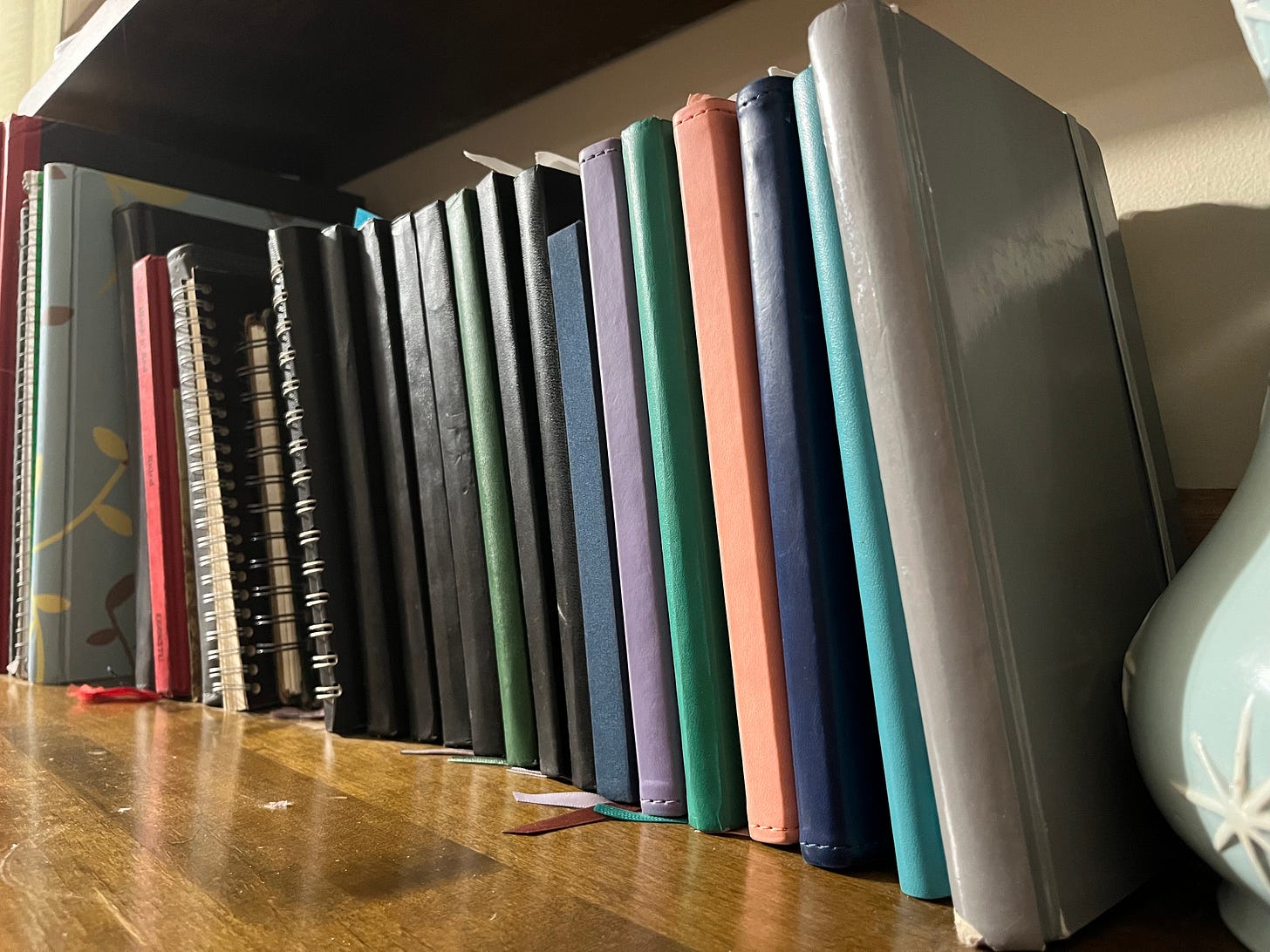
Words press against my lips. Too many. Not enough. All the wrong ones.
What is voice? What is finding the right words? I have numerous versions of an essay about my summer, trying to explain what I’ve been going through and I stop midway, either embarrassed by my vulnerability or horrified by what I’m really going through. In the end, I wonder am I just complaining?
Regardless, this summer hasn’t been a summer.
I was in the backyard last night, the sun sinking lower in the sky so it filtered through the neighbor’s cedar trees. I could see moths flittering in the light, the shade, back again. They looked like they could have been little fairies the way they bent that slanted light. And here is what my summer has been like. Shaded and dark. Bright and glittering. Hopeful and hopeless.
The few moments I’ve wanted to sink into have been brief but bright. The smile on my son’s face. The spiderweb stretched between the branches on a tree. The crackling of a fire. The nearby voices of those I love. The moment when the thrumming pain lessons and I feel light, for a second.
I’ve thought a lot about voice over the years. Who gets to be heard. Who needs to be heard. Who is never heard. Ideally, everyone should have a voice. For some reason, I have been heard. Listened to. Treated. Sometimes even on an expedited timeline. What of my many privileges, in this case, allows me to be heard over others? Will it cease being a privilege one day?
I revisit Terry Tempest Williams’ When Women Were Birds, whenever…well, for whatever. My copy is worn, the edges of the cover soft and falling apart from so much handling. The pages are wrinkled from the time it got caught in the rain. It is a small book and I’ve carried it around like a tailsman. Like it could stop a bullet if I place it over my heart. Tempest Williams explores the mystery of her mother’s empty journals and what women will, won’t, or can’t speak.
I grabbed When Women Were Birds from beside my bed where it rests among a good two dozen unread books. I wasn’t sure what I was looking for, only that I was frustrated, in pain, and had too many drafts all dripping in cringe and half-formed thoughts. There had to be something here to guide me. Something to pull the edges of myself back together.
Three quarters through the book she shares a style of writing that she calls repetations. She will write and write and write over a single line, until it is a blur of black. She says of this style, “My own hand, with pencil in place, bushwacks through my psyche, cutting through the dense understory of random thoughts. As my black pen circles back on itself, destroying as it creates, hiding what has just been written as another sentence walks across the newly exposed words, I am freed. My repetations tell me the truth the moment they are drawn.”
Maybe this is what I have been doing with my multiple versions - searching for truth among the angry tangle of my thoughts. “There is an art to writing and it is not always disclosure. The act itself can be beautiful, revelatory, and private.” Why have I always felt the need to share? Art begs to be shared, but not all art. Does this need to be shared? I wonder as I click through the different drafts. Should I tear them up to feed the garden like Tempest Williams does with her repetations? I glance out at my backyard, eyeing the half-dead flowers. They need something and ink on paper probably isn’t it.
Words always claim to be truthful, but are they? I suppose it is how they are wielded. There is the phrase the truth will set you free. Whose truth? And what if the words fail you? I flip back through my journal, seeing pages and pages of words. I look in my drafts and find half-written truths and think maybe this needs to take up space. Maybe, like Tempest Williams’ mother’s empty journals, it needs to remain unsaid but take up space at the same time. A long shadow to accompany me, drift after me.
Near the beginning of her book, Tempest Williams writes: “If ever there was a story without a shadow, it would be this: that we as women exist in direct sunlight only.” Meaning we do not have shadows, that “we carry only the crises of those we love.” I have seen it in the generations before me. Women who carry the mental and emotional load of the home all in silence. Even with my son, who wants me to be only mom, to exist for him alone. To be more than that is complicated for a child. It’s complicated for me.
This summer, all labels, words, have been peeled from me except sick person. I am not daughter or mother or friend or lover. I have no shadow and it’s a lonely place to be. The world continues around me while I am frozen in pain or fatigue. I am told “rest,” “relax,” and “heal,” adequate words for a sick person, for any person, really. Meanwhile, everyone else takes off on adventures. I turn to my journal and “bushwack” through my pysche and I end up with mutilated words, a mulch not good enough to be used as fertilizer. Like Tempest Williams’ pen, I start again. And again. Though, unlike Tempest Williams, I don’t feel like I’ve arrived at some raw realness. Glimmers, maybe. Like the moths in the sunlight. Maybe that is enough. For now.
Note: When Women Were Birds was recommended by my good friend Jaime years ago. Hi Jaime! And thank you!



